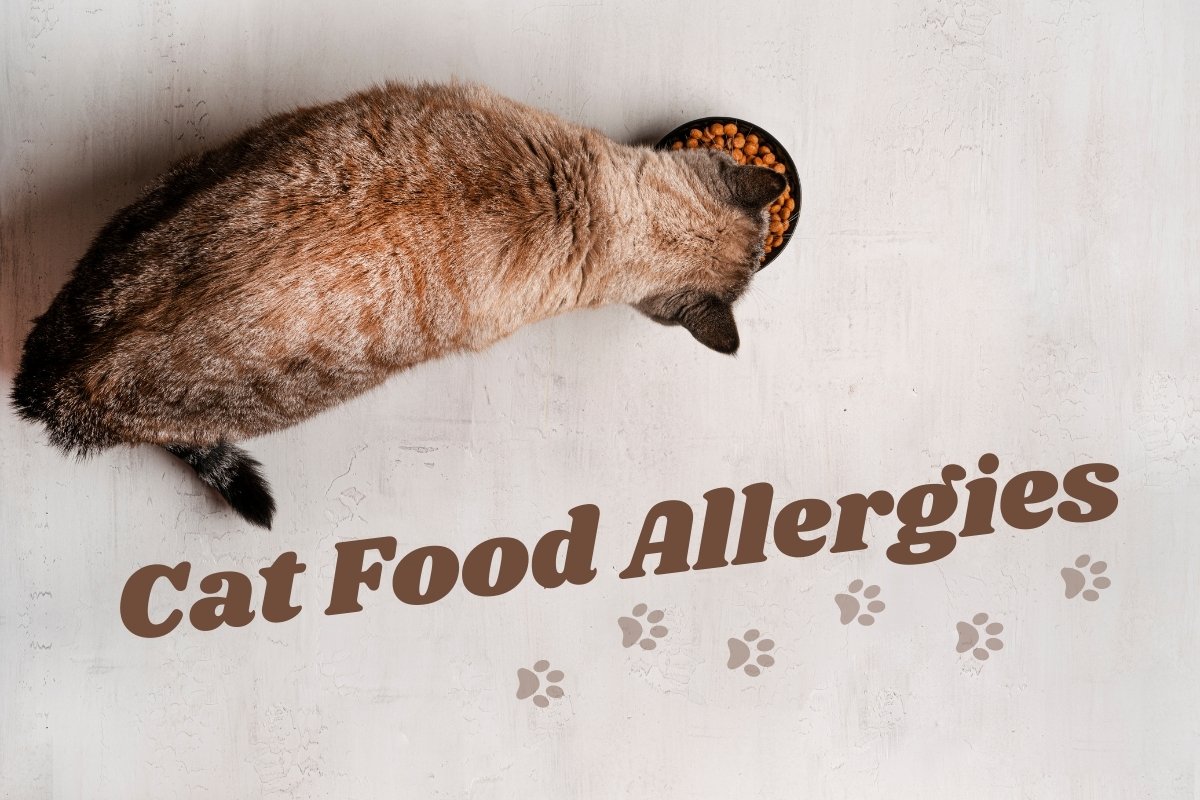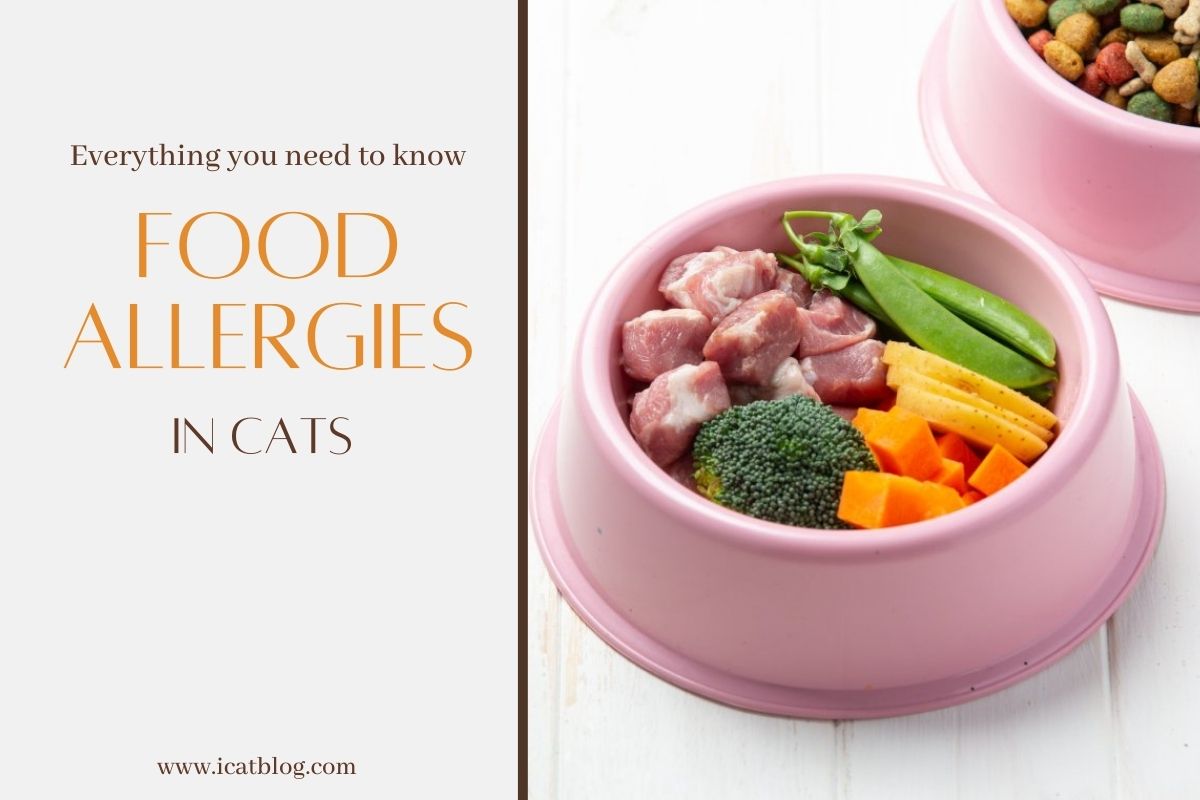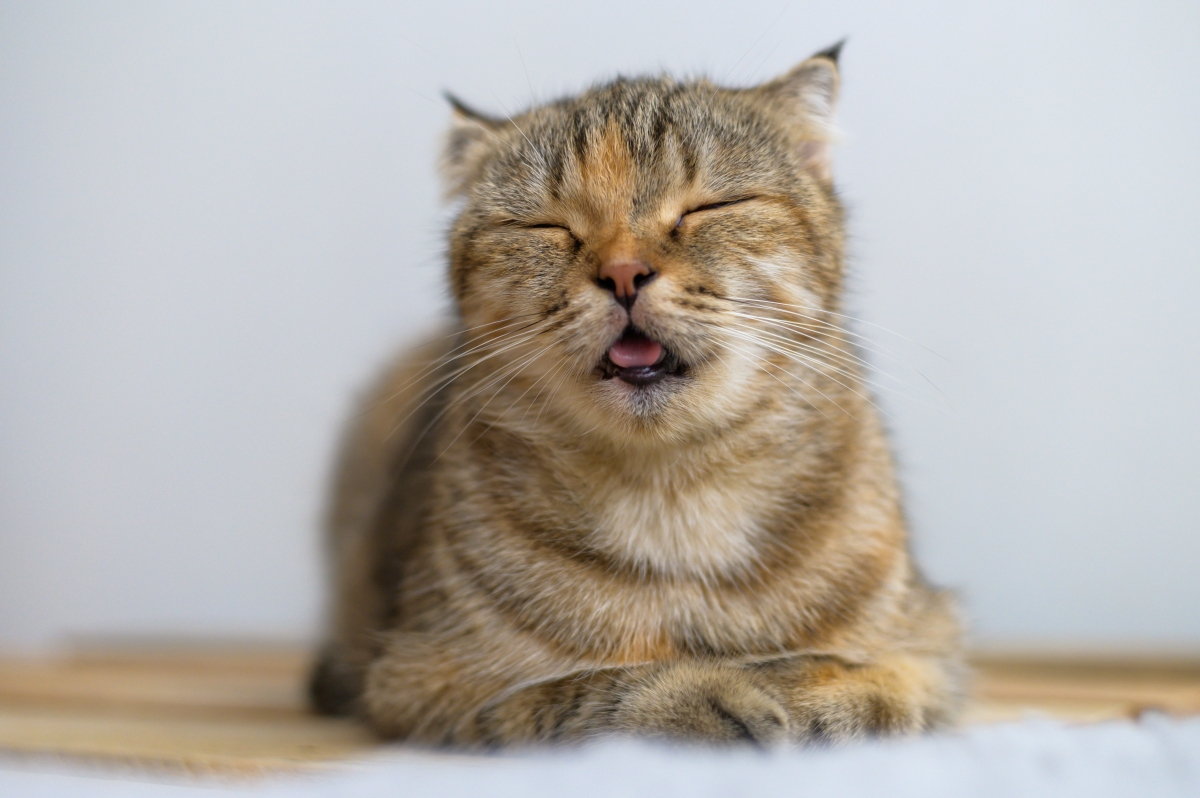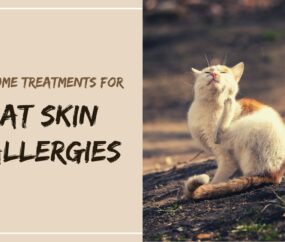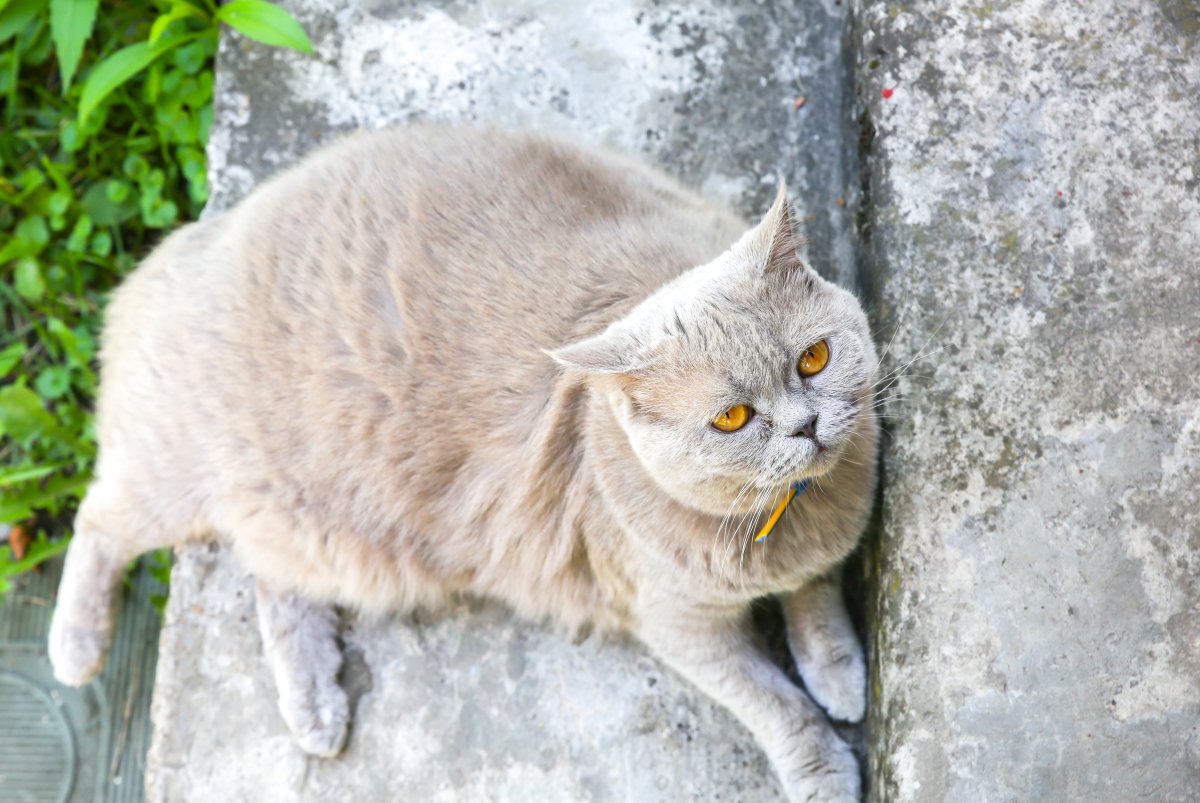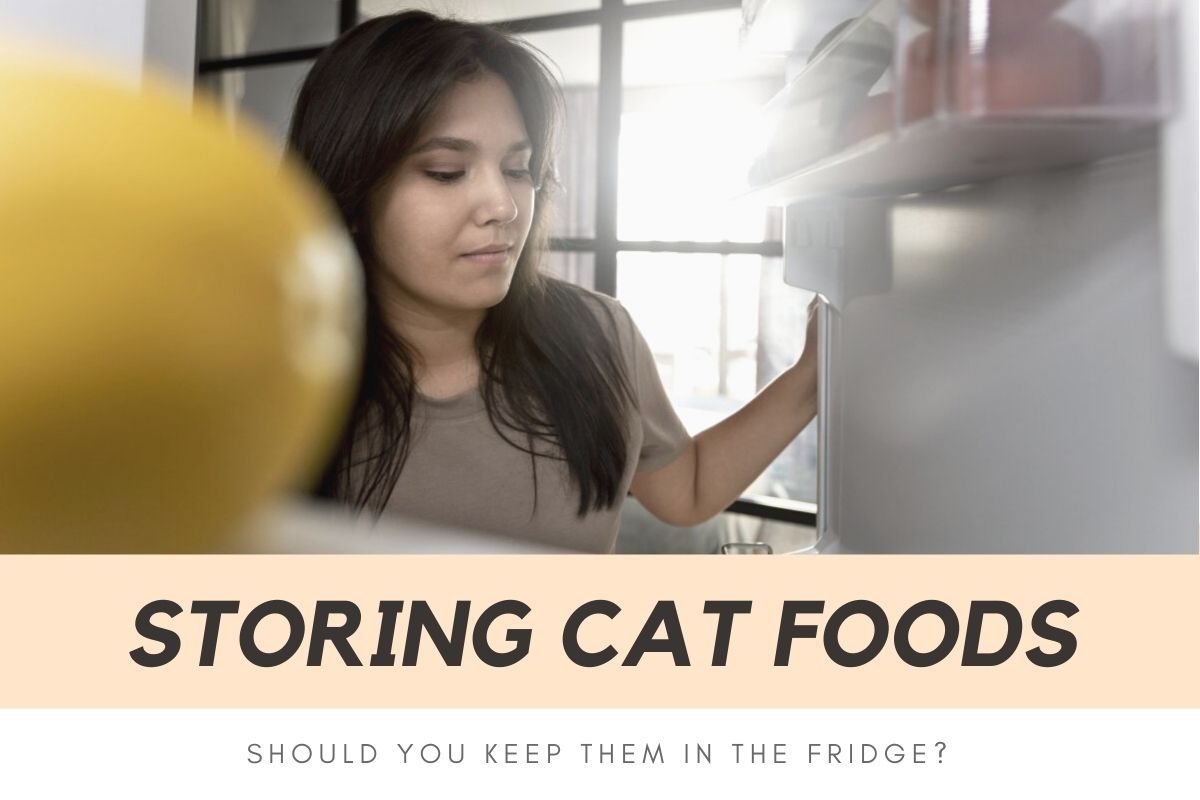Are you worried about your cat vomiting on the newly bought lounge sofa? You shouldn’t be. There are other serious things to be more worried about, like why in the first place is your cat vomiting?
According to vets, five out of ten complaints people approach them with are their cats vomiting and having a sensitive stomach. Vets have claimed that no matter how often a cat vomits or roams around with an upset stomach, more or less, it is never normal and something to be ignored.
There can be numerous reasons why your cat might have a sensitive stomach. It could range from any possibility of your cat being allergic to certain foods or intolerant to digesting them. In this article, we will be discussing all the cat food allergies there possibly can be, their symptoms, and their treatments.
Food Intolerance in Cats
Food intolerance is a phenomenon in cats where they abnormally respond to certain foods, often because of a digestive issue. Cats can grow to be intolerant of any food item at any age and period in their life, and it necessarily doesn’t have to be from an early age.
Food intolerance causes upset digestive systems in cats that lead to histamine in spoiled fish, food poisoning, eating strange things from the garbage they usually wouldn’t, and lactose intolerance as well.
Cats facing food intolerance issues are typically put on a changed diet, often to the easily digestible ones. The proper treatment for your cat will, of course, be advised by a professional vet after a thorough examination of the cat’s food intolerance severity.
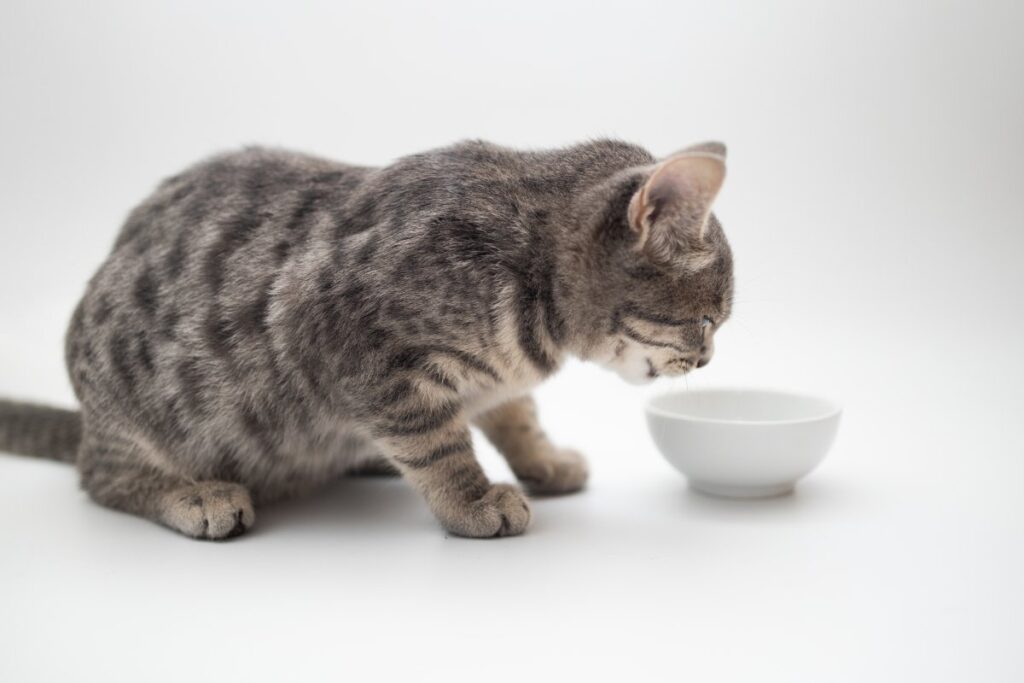
Food Allergies in Cats
Food allergies are usually an allergic reaction to certain food items in cats, more precisely known as an abnormal immune reaction. While there is no specific age for a cat to develop a food allergy, it is luckily a common phenomenon that can be easily treated.
Showing irregular patterns of upset stomach is not the problem. Still, the real problem is if your cat is exposed to that food item for an extended time and develops a prolonged upset stomach. The most prominent signs of cat food allergies are loss of appetite, diarrhea, vomiting, reddened skin, hair loss, itchy skin, or flatulence. If you notice any of these signs in your cat, it is better advised to rush to a vet immediately.
Foods commonly associated with food allergies in cats include the following:
- Fish
- Beef
- Dairy products
- Chicken
The research performed in this particular area of food allergies in cats is minimal, but there might be other items that make cats allergic.
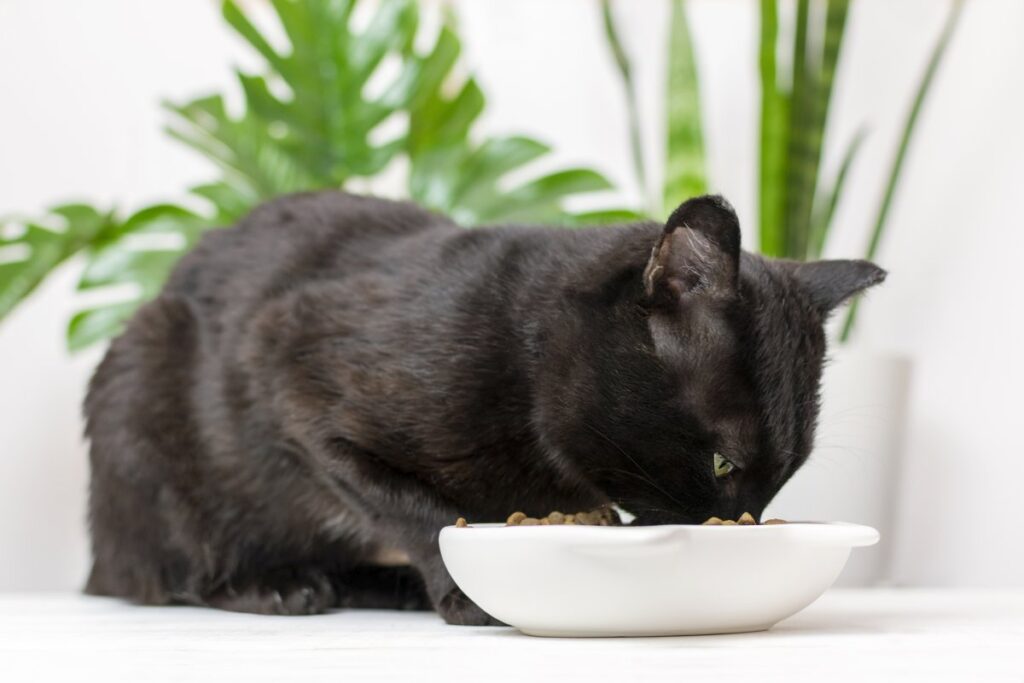
Symptoms and Risk Factors of Food Allergies in Cats
Look out for the following conditions in your cat if you want to steer clear of any food allergic reactions:
- Extreme scratching
- Wheezing, coughing, or sneezing
- Ear concerns
- Runny nose and eyes
- Diarrhea
- Vomiting
- Chewing paw
- Increased snoring because of an inflamed throat
- Coarse, brittle, or dull furr
- Swollen paws
If your cat shows any increased symptoms of the points mentioned earlier, there might be an increased risk of food allergies. Irrespective of the age or time of the year, cats can develop food allergies and show symptoms at any time.
One of the most common factors that cause food allergies in cats is genetic predispositions. Or at other times, food allergies can often be caused because of inhaling something rather than eating. So keep an eye open for both food and environmental allergens that can threaten your cat’s well-being.
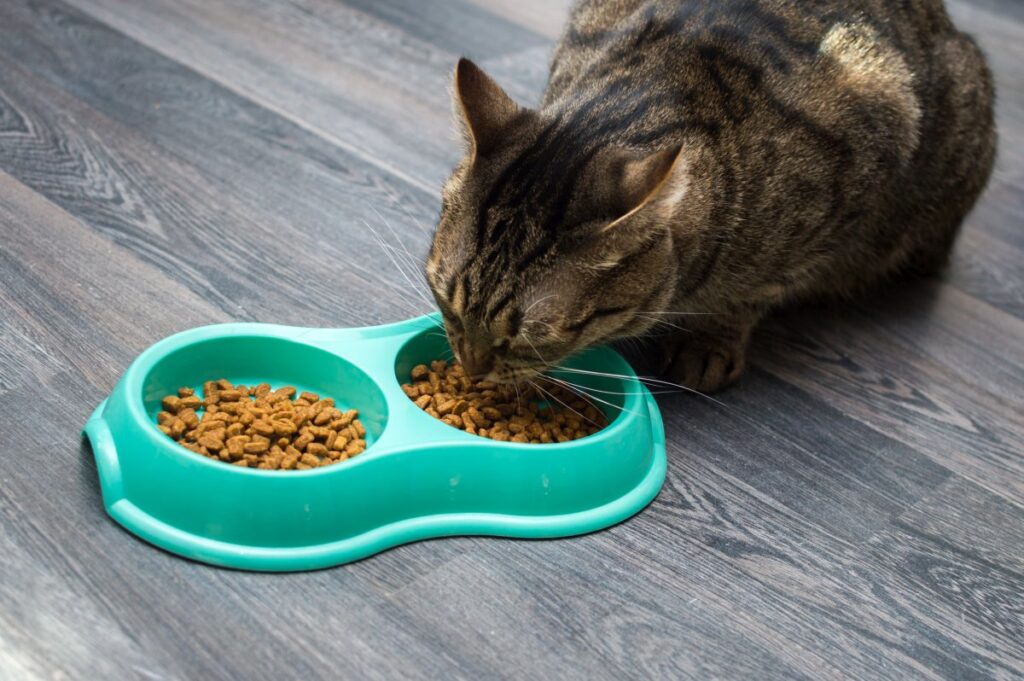
Treatment of Food Allergies in Cats
There is no natural and proper cure for food allergies in cats, much like other allergies. Instead, more efforts can be made to avoid food allergies in cats that give rise to severe conditions as an alternative.
If and when your cat has been fully diagnosed with a food allergy, you may move back to the trial food your cat was consuming in the initial days as a long-term way to avoid allergic reactions in cats. If this is not something your cat is settling down to, sit down with your cat’s veterinarian and draft up another diet that might be able to give similar relief from allergies to your cat.
The cat food allergy severity levels in every cat are different from the others. While some show a more dramatic and drastic response to even a tiny amount of allergens that can be caught quickly, others often show a high tolerance and can do better if the flavors of the food are changed.
Regardless of that, it is essential to find one proper diet for your cat once and for all with the help of a professional veterinarian and continue the same diet for as long as it’s suiting for the cat. Also, avoid any additional treats or any other food items that can repeatedly cause allergic reactions.
Final Words
In conclusion, catching allergy symptoms in your cat is neither a difficult task nor a treatment. You must only be open to your cat’s symptoms and diligent in maintaining a healthy diet for them. Proper checkups and appointments with veterinarians are more likely to keep your cat from food allergies as they can catch symptoms better and faster than you. The earlier the treatment, the better health your cat will have.

